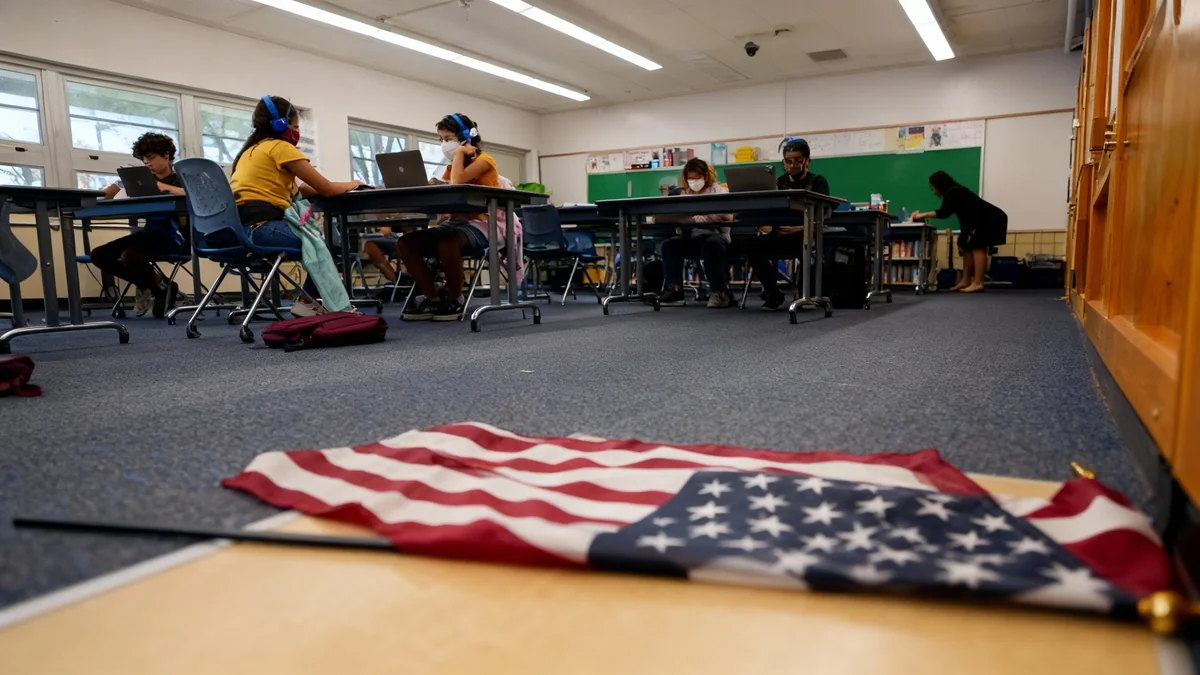Educators across Connecticut are confronting a significant increase in student aggression, leading to a tense and often dangerous environment in classrooms. The Connecticut Education Association (CEA) has identified this issue as one of the most pressing challenges in the state's education system today, with teachers routinely facing verbal abuse, threats, and physical assaults.
The escalating problem has resulted in serious consequences for school staff, including physical injuries that have led to workers' compensation claims. Some teachers are so affected by the hostile climate that they have requested transfers to different schools, raising concerns about teacher morale, retention, and the overall stability of the learning environment.
Key Takeaways
- Teachers in Connecticut are reporting a significant increase in verbal and physical aggression from students.
- The Connecticut Education Association (CEA) has labeled the issue as a top concern for the state's education sector.
- Incidents have led to teachers sustaining injuries, filing for workers' compensation, and requesting school transfers.
- The trend is creating a challenging work environment that impacts teacher well-being and retention.
A Growing Crisis in the Classroom
The daily reality for many Connecticut teachers now includes navigating a landscape of hostility. Reports from educators across the state describe a pattern of behavior that goes far beyond typical classroom disruptions. Students are frequently insulting, cursing, and threatening teachers, creating an atmosphere of intimidation.
These verbal confrontations often escalate into physical acts. The CEA has noted that physical assaults are a serious component of this trend. While specific data on the number of incidents was not immediately available, the association's statements reflect a widespread problem affecting numerous schools and districts.
This isn't an isolated issue confined to a few schools. Education advocates describe it as a systemic problem that has been building over time. The consistency of these reports from various parts of the state suggests a broad cultural shift within school environments that is leaving many educators feeling unsupported and unsafe.
The Human Cost for Educators
The impact of this aggressive climate on teachers is profound and multifaceted. Beyond the immediate risk of physical harm, the constant stress and verbal abuse take a significant psychological toll. This has led to a noticeable decline in morale among teaching staff, who are trained to educate and inspire, not manage constant threats.
Understanding the Consequences
The strain on educators manifests in several ways. Some teachers have been forced to take extended leave due to injuries sustained at school, filing for workers' compensation to recover. This not only affects the individual teacher but also creates instability in the classroom, as substitute teachers are brought in to cover absences.
A growing number of educators are actively seeking to leave their current positions. The CEA confirms that requests for transfers to different schools within a district have become more common as teachers try to escape particularly difficult environments. This internal movement highlights the severity of the problem, as educators are not leaving the profession entirely but are desperate for a safer workplace.
"The tense climate has caused teachers to ask to move to other schools to teach and some have been out on workers compensation due to injuries at school." - Connecticut Education Association statement
This situation directly impacts teacher retention. When experienced educators feel compelled to change schools or consider leaving the profession, it creates a knowledge and experience gap that is difficult to fill. The long-term health of the state's education system relies on its ability to retain qualified and motivated teachers.
Searching for Solutions and Support
Addressing the rise in student aggression requires a comprehensive approach that involves school administrators, parents, and state policymakers. Education advocates are calling for more robust support systems for teachers who experience these incidents, including better safety protocols and mental health resources.
Key Areas for Improvement
- Enhanced Training: Providing teachers with more effective de-escalation and conflict resolution training to manage volatile situations.
- Administrative Support: Ensuring that school leaders take reports of aggression seriously and implement consistent consequences for unacceptable behavior.
- Mental Health Resources: Increasing access to counseling and support for both students and teachers to address the root causes of aggression and the trauma it creates.
- Parental Involvement: Fostering stronger partnerships between schools and parents to create a unified front against aggressive behavior.
The challenge is not simply about discipline; it is about understanding the underlying factors contributing to this behavior in students. Many experts point to the lingering social and emotional effects of recent societal disruptions, economic stress on families, and a growing mental health crisis among young people as potential drivers.
Without decisive action, the state risks a further decline in the teaching profession. The current climate threatens to drive dedicated educators away and deter new candidates from entering the field. For now, teachers and their advocates continue to sound the alarm, hoping that their concerns will lead to meaningful changes that restore safety and respect to Connecticut's classrooms.





